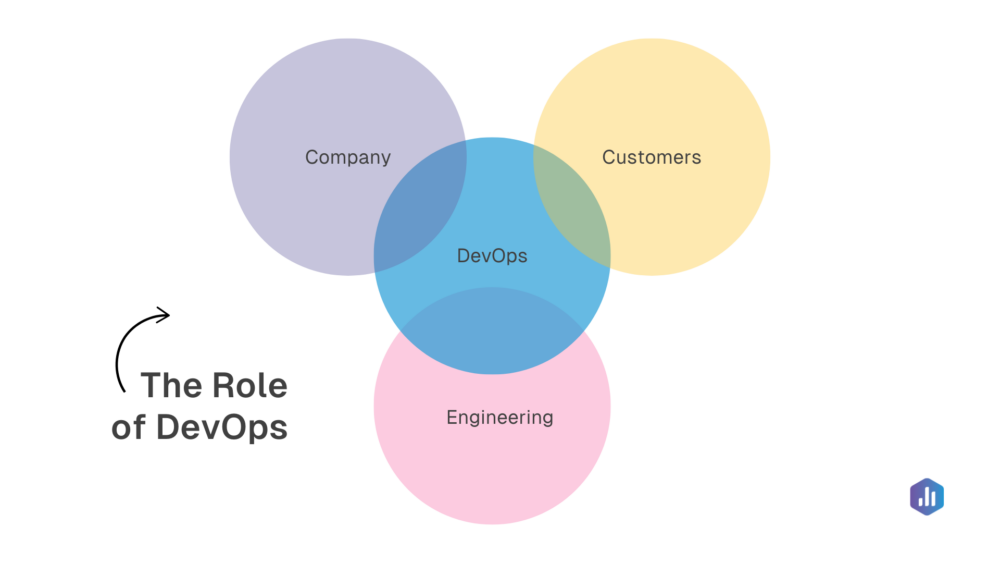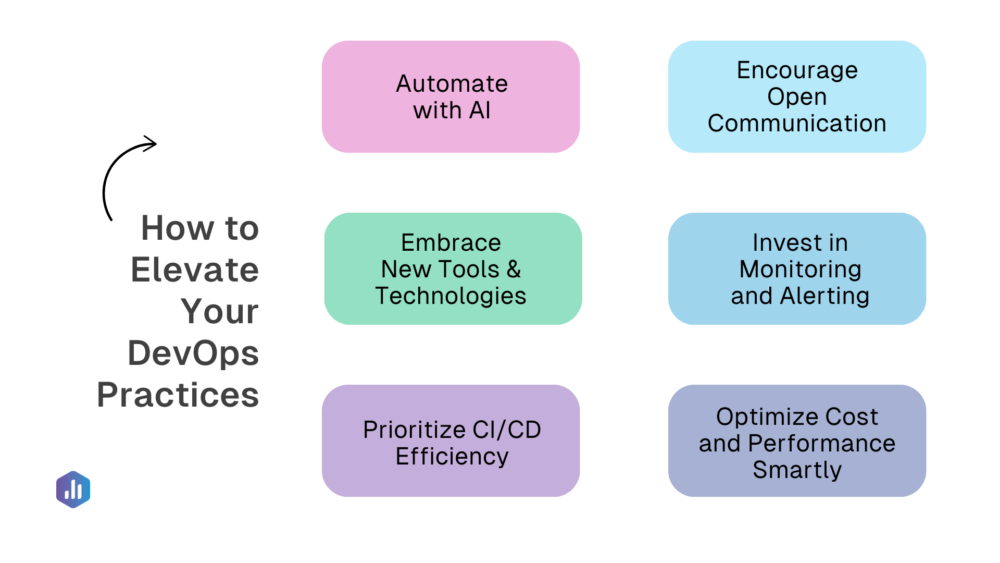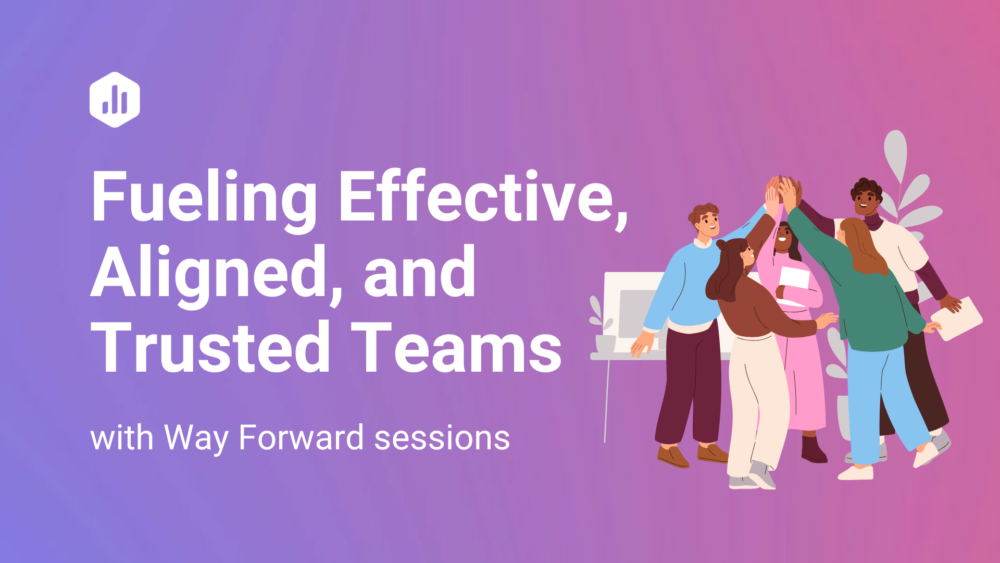Table of contents
In Playmaker Spotlight, we get up close (and sometimes personal) with a valuable team member whose individual contributions shouldn’t be overlooked but instead used to highlight their unique experience. Besides taking this great opportunity to share their accomplishments with the world, we also hope to provide you with insider info about our team culture and what it’s like to work at Databox.
Innovation in the SaaS world is not just flashy features and big launches. It is also the reliability, scalability, and behind-the-scenes work that keeps everything running smoothly. At Databox, our DevOps team is the silent engine powering everything from our beautiful dashboards to real-time insights.
In this spotlight, we’re getting up close and personal with Peter Pogladič, Engineering Manager of our DevOps team. Keep reading to learn about his journey of discovery, challenge, and growth that perfectly encapsulates the spirit of DevOps at Databox.
From Curiosity to DevOps Leadership
Peter’s journey into DevOps started nearly 15 years ago when the need for specialized infrastructure management wasn’t as clear-cut. As products scaled, so did the challenges, and Peter’s natural curiosity about cloud infrastructure set him on a path that soon defined his career.
“It felt natural for me to take on the DevOps side, as my work was already more infrastructure-oriented. I was also genuinely curious about how to set up infrastructure in the cloud, which was still a new concept for me and the company at that time. That curiosity led me deeper into the DevOps world, and it’s been my focus ever since.”
After eight years of experience in DevOps and software development—mastering cloud platforms, container orchestration, and automation, including mastering Amazon EKS, Kubernetes, and leading technical teams—Peter joined Databox as a Senior DevOps Engineer and later took over leadership of the DevOps team. With Peter came a strong focus on scalability, automation, reliability and fostering collaboration with engineering and technical support teams.
Reflecting on his first day at Databox, the welcoming atmosphere, openness to growth, and genuine support from everyone come to mind—all things that made him feel like an integral part of the team from the very beginning.
“My first day at Databox still holds a special place in my heart. What stood out most was not only the warmth and friendliness of the team, but also their passion, skill, and willingness to support me from day one. This combination of welcoming energy and professional excellence continues to define our culture.”
A Day in DevOps
Usually, a team’s work is immediately visible. In the case of Development Operations (DevOps for short), the impact often happens quietly, but the results are both rapid and tangible.
For DevOps, a normal day means focusing on keeping our systems running smoothly. They manage automated CI/CD pipelines that continuously deliver new features without downtime. With this approach, they allow new features to reach the market rapidly and are accessible to our users immediately. Besides, they focus on optimizing our cloud costs, which ensures that our platform remains financially efficient while scaling to meet demand. Their work also revolves around security, observability, and high availability, which ultimately allow Databox to deliver a reliable experience for our customers 24/7.
“Our team makes sure feature launches are smooth and efficient. We automate deployments, optimize infrastructure costs, and maintain system reliability, which helps Databox grow without compromising stability.”

However, their work is much more than just maintaining systems—it involves continuous improvement. From optimizing database performance to fine-tuning Kubernetes clusters, the Databox DevOps team is constantly evolving. The best way to describe them is the glue between engineering teams, customers, and the company—a team that keeps everyone aligned, solves problems fast, and makes sure our infrastructure supports the bigger picture.
Through his leadership, Peter has made sure that DevOps isn’t just a team but a mindset that influences how all engineers at Databox work. Through knowledge-sharing sessions, close collaboration with developers, and integrating DevOps best practices into product development, his team ensures that operational efficiency, automation, and scalability are second nature to all engineers, not just the DevOps team.
Staying Ahead of the Curve
While the DevOps team operates largely behind the scenes, Peter stresses that Databox’s culture of innovation and adaptability is what makes his day-to-day work so rewarding.
“Databox has a unique approach to DevOps. We blend technical excellence with a mindset that embraces new ideas. Putting a strong emphasis on flexibility, especially with release schedules, which allows us to innovate while still keeping our standards high.”
Their long-term vision is something they lean on: build a scalable, efficient, and resilient platform that supports rapid product innovation without compromising stability.
To work towards that goal, the small but mighty DevOps team keeps refining its infrastructure and processes with the help of three guiding principles:
- Scalability and Performance – Ensure Databox remains responsive and efficient as workloads grow.
- Automation and Reliability – Reduce manual work and increase system resilience through smarter automation.
- Collaboration and Developer Experience: Empower engineering teams with the right tools and processes to move quickly while maintaining quality.
With this focus, Peter and his team continuously embrace modern tools and methodologies, driving both engineering efficiency and a higher-quality product experience.
At Databox, AI is one of our top strategic priorities for 2025. As part of this focus, our DevOps team has been using AI tools to significantly improve the way they work. These tools help the team onboard new members faster, make their processes easier to follow, support smarter decision-making, automate repetitive tasks, and solve issues more quickly. The result is a more efficient and high-performing team.
Some of his team’s recent advancements include:
- Implementing Citus for distributed PostgreSQL, allowing Databox to efficiently manage large datasets.
- Adopting Karpenter for Kubernetes autoscaling, ensuring the right-sized infrastructure at all times. This has led to a 30% cost optimization while improving the efficiency of scaling operations, ensuring resources are always available when needed but never over-provisioned.
- Migrating workloads to AWS Graviton instances, improving both performance and cost efficiency.
- Introducing Preview environments to boost development velocity. Engineers can test, iterate, and deploy changes on production-like environments before releasing them to production. This means faster feedback for the engineers and faster delivery of new features, enabling product growth.
The innovations mentioned above are not just technical upgrades. They represent significant milestones on their path to future-proofing our platform and ensure Databox is always ready for the next challenge.
“The distinctive blend of technical prowess and a forward-thinking mindset is what makes our DevOps approach stand out and drive our success.”
Advice for DevOps Teams
Peter’s journey has given him insights that stretch beyond technical knowledge. When we asked him about advice to DevOps professionals, he shared the following:
- Automate everything possible and don’t forget to leverage AI. Automation reduces human errors and improves efficiency, but the real power lies in combining it with AI—troubleshooting issues, optimizing pipelines, predicting scaling, and validating code.
- Foster a culture of open communication. DevOps thrives on collaboration between development, operations, and security teams. Engineers are key collaborators, and sharing ideas openly is essential for improving processes and workflows.
- Embrace new tools and technologies. Experimentation is key to staying competitive in a rapidly evolving industry.
- Prioritize CI/CD efficiency. Fast feedback loops and reliable automation are crucial to a high-performing DevOps team.
- Invest in monitoring and alerting. Catching issues early prevents major incidents.
- Make smart trade-offs between cost and performance. Cost optimization isn’t about cutting expenses at all costs—it’s about making informed decisions that balance performance, reliability, and financial efficiency.

To make DevOps a strategic enabler of innovation, it’s important to go beyond technical improvements and make DevOps part of your company’s engineering DNA. At Databox, Peter has done that by continuously encouraging cross-team collaboration, championing infrastructure-as-code best practices, and advocating for automation. By doing so, he’s reinforced a culture where DevOps is about much more than just keeping systems running—it’s about driving progress and making things happen across the organization.
A Journey of Continuous Innovation
The role of DevOps at Databox is silent yet powerful and supported by continuous transformation and dedication. The team’s relentless pursuit of innovation and operational excellence ensures that every new feature reaches customers quickly and reliably.
Moral of the story? Behind every great product is a team committed to making the invisible indispensable. In our case, that’s DevOps.












